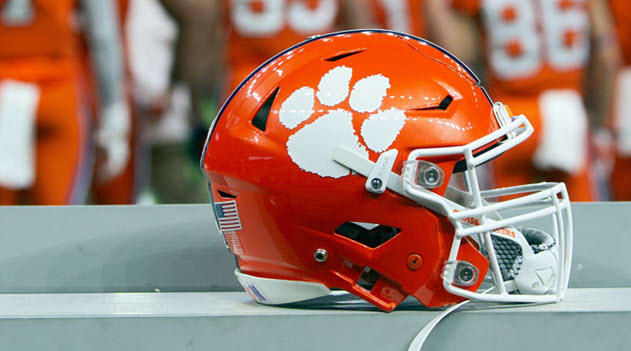1. Todd Gurley, JR., Georgia
Few running backs can match Gurley's intimidating combination of size and speed. At 6-1, 232, Gurley has the size and strength to pummel even SEC defenses and the burst and speed of a runner 30 pounds lighter. He was also an elite receiver last year, making his all-around game impeccable. Although an ankle sprain robbed him of more than three games last season, he still rushed for 989 yards (6.0 YPC) and 10 touchdowns with 37 catches for 441 yards (11.9 YPC) and six more scores. He should get leaned on even more this season as Georgia breaks in a new quarterback.
2. Melvin Gordon, JR., Wisconsin
Gordon is a big-play threat with unmatched ability to split the safeties and pull away from defenders. After finishing 2012 with 621 yards and three touchdowns on just 62 carries, Gordon (6-1, 206) followed with another stunning season last year, rushing for 1,609 yards and 12 touchdowns on 206 carries, good for 7.8 yards per rush. Gordon will earn an even greater share of the rushing production now that James White is off to the NFL, giving him 2,000-yard potential. Sophomore Corey Clement will share carries, but like last year with the Gordon-White duo, there will be enough to go around.
3. Leon Allen, JR., Western Kentucky
Following top-3 fantasy backs Bobby Rainey and Antonio Andrews, Allen is the most bruising Hilltoppers RB yet. At 6-0, 235, Allen has standout burst and receiving skills
1. Todd Gurley, JR., Georgia
Few running backs can match Gurley's intimidating combination of size and speed. At 6-1, 232, Gurley has the size and strength to pummel even SEC defenses and the burst and speed of a runner 30 pounds lighter. He was also an elite receiver last year, making his all-around game impeccable. Although an ankle sprain robbed him of more than three games last season, he still rushed for 989 yards (6.0 YPC) and 10 touchdowns with 37 catches for 441 yards (11.9 YPC) and six more scores. He should get leaned on even more this season as Georgia breaks in a new quarterback.
2. Melvin Gordon, JR., Wisconsin
Gordon is a big-play threat with unmatched ability to split the safeties and pull away from defenders. After finishing 2012 with 621 yards and three touchdowns on just 62 carries, Gordon (6-1, 206) followed with another stunning season last year, rushing for 1,609 yards and 12 touchdowns on 206 carries, good for 7.8 yards per rush. Gordon will earn an even greater share of the rushing production now that James White is off to the NFL, giving him 2,000-yard potential. Sophomore Corey Clement will share carries, but like last year with the Gordon-White duo, there will be enough to go around.
3. Leon Allen, JR., Western Kentucky
Following top-3 fantasy backs Bobby Rainey and Antonio Andrews, Allen is the most bruising Hilltoppers RB yet. At 6-0, 235, Allen has standout burst and receiving skills for such a big runner. He has 674 rushing yards (5.3 YPC) the last two years, scoring seven times on 128 carries, and he caught 22 passes for 202 yards and a score last year. Andrews is off to the NFL after averaging 2,186 yards and 15 touchdowns from scrimmage the last two years, and Allen should have a similar workload.
4. D.J. Foster, JR., Arizona State
Long one of the nation's most talented running backs, Foster will finally get a chance to start with Cameron Marshall and Marion Grice out of the picture. The dual-threat playmaker is probably the nation's best receiver at the position, making him a justifiable top pick in PPR formats. In addition to rushing for 994 yards and eight touchdowns the last two years, Foster (5-11, 195) caught 101 passes for 1,186 yards and eight touchdowns. Foster could produce similar numbers as Grice (1,434 yards, 20 TD in 11 games) now that he's in the same role.
5. Tevin Coleman, JR., Indiana
If not for a season-ending ankle injury in his ninth game last year, Coleman (6-1, 205) likely would have finished 2013 with incredible numbers. He rushed for 958 yards (7.3 YPC) and 12 touchdowns, adding 19 catches for 193 yards, and scored at least one touchdown in every game. He likely will see even more carries this year, as backup RB Stephen Houston graduated. Indiana returns its entire offensive line, making Coleman once again a high-upside play.
6. Jeremy Langford, SR., Michigan State
Langford (6-0, 206) barely beat out the likes of Nick Hill and Riley Bullough for the starting job last year, but he ended up among the nation's best. The former DB caught fire in October, running for 1,154 yards and 14 touchdowns in his final 10 games, and he even showed some PPR potential by snagging 17 passes in his final five games. Langford should be unchallenged as the top Michigan State RB this year, and his touchdown opportunities could increase now that the Spartans have a quarterback (Connor Cook) capable of leading them into the red zone.
7. Byron Marshall, JR., Oregon
Marshall did not disappoint in his first season as Oregon's top ballcarrier last year, taking 168 carries for 1,038 yards (6.2 YPC) and 14 touchdowns and catching 13 passes for 155 yards. He did this despite losing 96 carries to De'Anthony Thomas, who's now in the NFL. Marshall should exceed 200 carries this season, making his rushing floor about 1,200 yards and 15 touchdowns. Last year's 6.2 yards per carry appears sustainable as the offensive line returns all of its starters.
8. Kareem Hunt, SO., Toledo
The departure of David Fluellen to the NFL leaves a huge gap in the Toledo offense. Hunt (5-11, 200) looks like the best candidate to replace Fluellen, who rushed for 2,619 yards and 23 touchdowns the last two years. Hunt impressed last season, rushing for 789 yards (6.3 YPC) and six touchdowns in the final six weeks. That pace this season would give Hunt 1,578 yards and 12 touchdowns on the ground alone. The only concern is the possibility of Damion Jones-Moore and Marc Remy stealing carries, but that's not a serious worry because of Hunt's prominence in the offense last year.
9. Mike Davis, JR., South Carolina
There was once doubt surrounding South Carolina's ability to replace Marcus Lattimore, but Davis erased that in a hurry last year. He took off for 1,183 yards and 11 touchdowns on just 203 carries (5.8 YPC) while showing top-notch receiving skills, reeling in 34 passes for 352 yards. Davis is built to carry a feature-back workload at 5-9, 216, and he has good breakaway speed for a player his size. An ankle injury rendered him nearly useless in the final three games last season, but he has a lot of upside as long as he stays healthy.
10. Jay Ajayi, JR., Boise State
If Ajayi can hold onto the ball (four fumbles in 2013) he should be one of the nation's best. He's a big back at 6-0, 216, and showed a lot of athleticism in his first year as starter last season, bolting for 1,425 yards and 18 touchdowns on just 249 carries (5.7 YPC). He added 22 receptions for 222 yards and another touchdown. With a promising quarterback (Grant Hedrick) and two impressive receivers (Matt Miller, Shane Williams-Rhodes), the Broncos are poised to score a lot this year, and Ajayi will be their primary touchdown source. He could even improve his receiving production as Geraldo Boldewijn, Aaron Burks and Kirby Moore graduated.
11. Desmond Roland, SR., Oklahoma State
Roland sat behind Joseph Randle and then Jeremy Smith before finally getting a shot as a junior last year. At 6-2, 210, he is built for a feature-back role and showed workhorse ability in the second half of the season, rushing for 664 yards (4.7 YPC) and 11 touchdowns in the final seven games, adding two receiving touchdowns. Roland has the Oklahoma State backfield to himself this year and looks in store for a big senior season. He might have untapped potential as a receiver, too, as he was considered a WR recruit out of high school.
12. Ameer Abdullah, SR., Nebraska
After totaling 1,922 yards and 11 touchdowns in 12 games last year, Abdullah could be overvalued this season. First, it's simply difficult to post consecutive 1,900-yard seasons. Second, Abdullah doesn't score many touchdowns. He has just 17 touchdowns on his last 507 carries, largely due to teammate Imani Cross (10 touchdowns in 2013) stealing red-zone attempts. And Cross and Terrell Newby likely will see more carries in 2014 after combining for just 139 rushes last year. Abdullah's value is more stable in PPR leagues as he has 50 catches the last two years.
13. Corey Clement, SO., Wisconsin
Melvin Gordon gets all the hype, but Clement might be just as good. Like James White last year, Clement will pair with Gordon this year to form a dominant RB tandem. While Gordon offers unparalleled big-play upside, Clement brings a bruising element. Clement's bigger build (5-11, 210) could allow him to emerge as Wisconsin's primary short-yardage and goal-line back, giving him a chance to outproduce Gordon in fantasy terms. Clement, who ran for 547 yards and seven touchdowns on just 67 carries last year (8.2 YPC), could put up huge numbers with White (1,744 yards, 15 TD) now in the NFL.
14. Duke Johnson, JR., Miami
Johnson was a consensus top-5 fantasy RB entering last season, but a broken ankle in November robbed him of a productive season, and he was held to 920 yards (6.3 YPC) and six touchdowns. Johnson just might be the nation's most elusive back, but his ankle is a concern. If healthy, though, Johnson has about as much upside as any RB.
15. Travis Greene, JR., Bowling Green
Greene's exact fit in new coach Dino Babers' offense is uncertain, but he likely will be a building block of the new-look attack. The Falcons are expected to throw more this year, which should work fine for Greene, who caught 18 passes for 155 yards (8.6 YPC) and two touchdowns last year, in addition to 1,594 yards (5.7 YPC) and 11 touchdowns on the ground. RB Shepard Little rushed for 1,552 yards and 15 touchdowns in Babers' offense at Eastern Illinois last year, and odds are Greene (5-10, 181) is the new Little.
16. Jamaal Williams, JR., BYU
Williams (6-0, 200) was quietly productive as a freshman and sophomore, proving to be a true three-down workhorse with receiving skills. He rushed for 1,925 yards (5.3 YPC) and 18 touchdowns in his last 21 games, adding 437 yards and a touchdown on 44 receptions for 16.7 fantasy points per game (20.8 in PPR). Although BYU has some talent at RB, Williams appears unchallenged for the starting job, and he could get the best blocking of his career as BYU returns its entire offensive line.
17. Michael Gordon, JR., Arkansas State
Gordon (5-9, 187) spent the early part of last season behind incumbent starter David Oku, but Arkansas State coaches finally recognized Gordon as the superior player in the season's second half. He received 78 carries in the final five weeks, totaling 471 yards (6.0 YPC) and seven touchdowns. He also caught 10 passes for 124 yards and a touchdown in that span. Oku's eligibility expired this offseason, leaving Gordon the starter. A big-play threat with major upside as both a runner and receiver, Gordon is poised to provide excellent draft-day value.
18. Marcus Cox, SO., Appalachian State
Although he's making a significant jump in competition from the FCS to the Sun Belt, Cox (5-10, 185) looks like a premier fantasy back, especially in PPR formats. Cox not only ran for 1,250 yards (5.1 YPC) and 15 touchdowns as a true freshman last year, but he reeled in an impressive 43 catches for 559 yards (13.0 YPC) and six touchdowns. That's 29.2 fantasy points per game in PPR, 25.5 points per game in standard scoring. Other than a Week 1 game against Michigan, Appalachian State's schedule is free of intimidating matchups. The Mountaineers also return the offensive line intact.
19. T.J. Yeldon, JR., Alabama
Yeldon (6-2, 218) has a unique blend of burst, balance and power and likely will be among the most efficient running backs for the third consecutive season. But Yeldon's fantasy value takes a slight hit because of Alabama's deep backfield. Derrick Henry and Kenyan Drake are talented enough to start for most teams. That means Yeldon has a shorter leash – he is rested earlier in blowouts and gets pulled faster if he makes mistakes. Still, an RB coming off 1,235 yards, 14 touchdowns is valuable even if his production is a bit volatile.
20. Karlos Williams, SR., Florida State
Williams (6-1, 219) barely saw the field in his first two years, struggling at the bottom of the defensive back depth chart before the coaching staff eventually realized that he belonged on offense. He was a smash hit in his first season at RB in 2013, rushing for 730 yards and 11 touchdowns on just 91 carries, averaging 8.0 yards per rush. His consistency could disappoint in an offense that spreads the ball around at RB, but with Devonta Freeman (173 carries) and James Wilder (81 carries) gone to the NFL, Williams could get 15 carries per game this season. If so, he likely will average 100 yards per game behind an offensive line returning four of five starters.
21. Myles Willis, SO., Boston College
Willis (5-9, 192) will take over this season for Andre Williams, who rushed for 2,177 yards and 18 touchdowns last year. Williams totaled a whopping 355 carries last season, averaging 27.3 per game. Willis was next with 346 yards (5.8 YPC) and two touchdowns on 60 carries. Willis is an elusive runner and open-field threat with receiving upside, catching five passes for 60 yards and a score last season while also returning a kickoff for a touchdown. With seemingly little RB competition, Willis should easily approach 250 carries this season.
22. Jordan Howard, SO., UAB
As the backup last season, Howard finished with 881 yards (6.1 YPC) and two touchdowns, including 152 yards on just 23 carries (6.6 YPC) against LSU and Vanderbilt. With Darrin Reaves turning pro a year early, Howard could emerge as UAB's workhorse RB this year. He certainly has the build for it at 6-1, 228. UAB hired a new coach in Bill Clark, formerly of Jacksonville State, who is expected to use a more run-heavy approach. Jacksonville State RB DaMarcus James totaled 1,477 yards and 29 touchdowns last year, so it would be disappointing if Howard didn't easily post 1,000 yards and 10 touchdowns.
23. Ezekiel Elliott, SO., Ohio State
Carlos Hyde is off to the NFL, leaving a big opportunity at RB in Ohio State's prolific, Braxton Miller-led offense. Warren Ball and Bri'onte Dunn are around to vulture carries, but Elliott is expected to start and earn at least 200 carries – Hyde had 208 last season and fellow graduate Jordan Hall had 81. A top recruit last year, Elliot is 6-0, 225, with the speed to pull away from defenses. And after totaling 262 yards (8.7 YPC) and two scores on 30 carries in 2013, Elliott has solid upside this season.
24. Shock Linwood, SO., Baylor
Lache Seastrunk and Glasco Martin are gone from last year's squad, leaving behind 278 carries. Linwood (5-8, 200) is the top candidate to pick up most of that work, as he earned 128 carries a year ago, rushing for 881 yards (6.9 YPC) and eight touchdowns. Linwood could exceed 200 carries this season, giving him the opportunity to produce at least 1,200 rushing yards and double-digit touchdowns. Baylor doesn't throw to the RB much – Linwood, Seastrunk and Martin combined for five catches last year – so Linwood loses values in PPR leagues.
25. Jahwan Edwards, SR., Ball State
The 225-pound Edwards has impressive movement for a big back, and his combination of power and cutting ability helped him find the end zone 39 times the last three years. The only limitation to Edwards' game is as a receiver – his 28 career receptions went for just 125 yards (4.5 YPC) and no touchdowns. Still, he is a reliable double-digit touchdown source. The Ball State offensive line returns three of five starters, and Edwards might get more carries as the Cardinals break in a new QB.
26. Kenneth Dixon, JR., Louisiana Tech
Coach Sonny Dykes' departure might have doomed Louisiana Tech, but Dixon showed last year that he has the talent to produce even on a team that finds failure at every turn. The bruising 220-pound RB totaled 917 yards (6.1 YPC) in 10 games, twice hitting the 200-yard mark. He would have been even better if not for recurring knee injuries. Three-fifths of the offensive line is back, and the only concern is the poor offense around Dixon, which could make it hard for him to find the end zone again this year after only five touchdowns last season (four rushing, one receiving).
27. William Stanback, SO., UCF
Stanback (5-11, 221) was a quietly important piece of UCF's BCS Bowl-winning squad last year as an explosive backup RB and a dangerous receiving threat. He finished his freshman season with 443 yards (4.2 YPC) and six touchdowns rushing while adding 15 catches for 186 yards and a touchdown. Outside of Stanback and the now-departed Storm Johnson, no UCF player had more than nine carries last season. As the best bet to start this season, Stanback should get most of the 16.4 carries per game Johnson leaves behind, as well as most of his 30 receptions, giving him significant PPR upside.
28. Josh Ferguson, JR., Illinois
Ferguson (5-10, 195) made the most of his 141 carries last season by totaling 779 yards (5.5 YPC) and seven touchdowns. What's unique about Ferguson, though, is his receiving skills, as he caught 50 passes for 535 yards and four scores. He finished last season strong, rushing for 583 yards (5.3 YPC) and seven touchdowns in the final eight weeks while adding 38 catches for 273 yards and a touchdown. That's good for about 16.7 fantasy points per game, or 21.5 in PPR. The Illinois offense could struggle this year, and Ferguson will probably be a modest touchdown source, but his yards and receptions should remain high.
29. Thomas Tyner, SO., Oregon
An elite recruit last year, Tyner (5-11, 215) proved worth the hype as a true freshman. Even with De'Anthony Thomas and Byron Marshall soaking up 264 carries, Tyner racked up 711 yards (6.2 YPC) and nine touchdowns while catching 14 passes for 134 yards. Marshall is still around, but Thomas isn't, giving Tyner the chance for 175 carries this year. He's a good bet to average at least six yards a carry, so the Ducks might find themselves with two 1,000-yard rushers, something that happened as recently as 2008 with Jeremiah Johnson and LeGarrette Blount. Oregon also returns its entire offensive line.
30. Donnel Pumphrey, SO., San Diego State
Pumphrey is perilously small at 5-9, 170 (155 in 2013), but the speedy true freshman showed elite upside as a running-receiving threat last year. He rushed for 752 yards (6.0 YPC) and eight touchdowns while adding 22 catches for 234 yards (10.6 YPC) and two more scores. He did it all despite starter Adam Muema eating up 256 carries and 18 catches. But Muema is gone, paving the way for Pumphrey this season. While Pumphrey probably isn't big enough for a feature-back workload, he could post big numbers as long as he's healthy.
31. Shaquille Murray-Lawrence, SR., UNLV
32. Barry Sanders, JR., Stanford
33. Bronson Hill, SR., Eastern Michigan
34. Deontae Cooper, SR., Washington
35. Cameron Artis-Payne, SR., Auburn


























